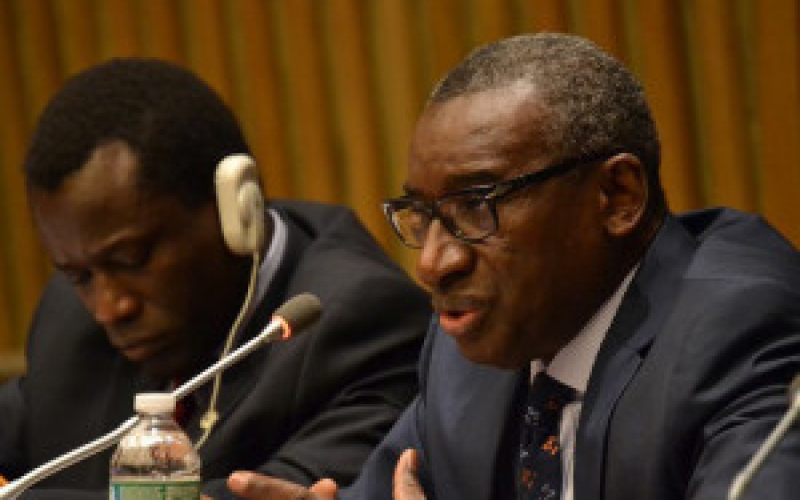Justice still matters in Africa

Civil society continuing to demand justice
Even in the face of growing intimidation and threats to their independence, local civil society groups in several Africa states are continuing their work to advance accountability for grave crimes and bring justice to victims of countless atrocities.
African civil society has come out strongly against calls for Kenya and other African ICC states parties to leave the Court. They are instead urging increased engagement and cooperation from the ICC’s biggest regional group of 34 states parties to develop the RS system into a truly global accountability mechanism.
Njonjo Mue, program advisor at Kenyans for Peace with Truth and Justice:
“Kenyan civil society has remained steadfast and has maintained a brave anti-impunity campaign at home and abroad through robust evidence-based advocacy for justice for victims. It has also led African civil society’s efforts to push back against the AU’s anti-ICC agenda.”
Many NGOs are also taking action to press governments into living up to their obligation under the RS to investigate and prosecute grave crimes at the national level. In February 2014, the visit of Sudanese President Omar Al-Bashir to the Democratic Republic of Congo (DRC) for a regional summit prompted widespread outrage. Ninety Congolese civil society organizations were among those calling on the DRC authorities to live up to their RS obligations to arrest ICC suspects such as Al-Bashir. The Sudanese president was reported to have left the summit early, as he had done when visiting Nigeria in 2013 after the Nigerian Coalition for the ICC applied to the high court for a warrant for his arrest.
Meanwhile, the Kenyan section of the International Commission of Jurists joined with Physicians for Human Rights and the Coalition on Violence against Women to support eight victims of sexual violence during Kenya’s post-election violence in petitioning the government for justice.
NGOs in countries such as Benin, Côte D’Ivoire, Cameroon, the DRC and Uganda were also active around International Justice Day in July 2014, organizing workshops and conferences to raise awareness of mass atrocity crimes and calling on states to join the ICC. Parliamentarians for Global Action also organized a meeting of MPs from Uganda and the DRC to build political will to support the RS.
High hopes for Sidiki Kaba
In December last year, Minister Sidiki Kaba, a long-time supporter of the fight against impunity, was elected to the influential position of ASP president, with the backing of 34 African ICC member states—a development welcomed by the Coalition as a potential turning point in the ICC-Africa debate.
Karim Lahidji, president the International Federation for Human Rights:
“FIDH welcomes the endorsement of Sidiki Kaba, its honorary president, for the position of president of the ASP. His well-known commitment for an effective ICC and for the protection of the integrity of the Rome Statute will serve him to achieve the vast challenges he will face. Kaba’s presidency should contribute to preserving the central role of victims in ICC proceedings. As the first African president of the ASP, Sidiki Kaba will play a crucial part in addressing the relations between Africa and the ICC.”
Civil society continues to tirelessly fight against impunity to support all those who desire justice. It is now looking to the new ASP president to harness all that is good about the Africa-ICC relationship so that attention can return to the real matter at hand: holding perpetrators of grave crimes accountable and providing justice to victims wherever they may be.
This post originally appeared in The Global Justice Monitor.
Have your say – How can the ICC-Africa relationship be improved?
